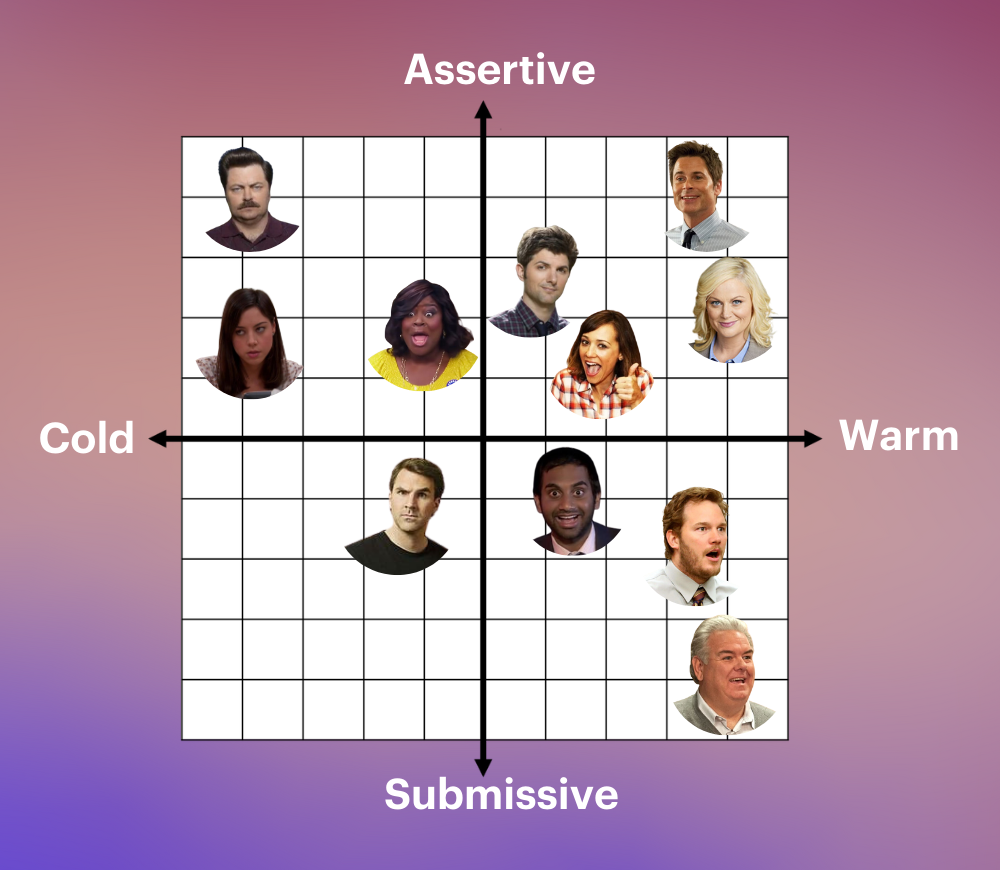Women have a status problem at work. At least, that’s how organizational psychologist Alison Fragale sees it.
In her new book, Likeable Badass, the U.N.C. Chapel Hill professor argues that, in the corporate world, it feels like “women face a million sources of disadvantage relative to men." In reality, she says they face two: “a lack of power and a lack of status” — and too often, efforts to elevate women in the workplace have focused on the wrong issue.
“We’ve been focusing on getting women their equitable share of power for a long time, making sure that they’re paid appropriately, that they’re represented at the top levels of organizations,” Dr. Fragale tells us. “Those are important problems that we need to solve, but we all know that we’re not closing the gap as quickly as we should, given that women are as educated as men and are consistently rated as good or better leaders.”
So what can women do to rise up the ranks? Concentrate on building their status, she says. And by status, she’s referring not to a spot on the org chart, but “how much people respect and regard you.” Unfortunately, women in general aren’t granted the same level of status as men, so they’re confronted with the extra challenge in their professional lives of having to build that esteem, Dr. Fragale explains.
Fortunately, Dr. Fragale provides plenty of science-backed strategies to help women in particular gain status and, eventually, power in the office. We spoke to her about the psychological measure of status and how understanding that can help you become a “likeable badass,” too.
Katie Couric Media: Throughout the book, you use one psychological concept to understand status and how it’s earned. Can you break that down for us?
Dr. Fragale: I titled the book Likeable Badass because it’s a catchy term and it represents an underlying psychological truth about where status comes from. In psychology, there’s something called an interpersonal circumplex of person perception. When we look at someone, the judgements we make aren’t random. They’re organized along two dimensions.
One measure is assertiveness — how competent they are, how decisive, how persistent, how organized. The other dimension is warmth — how they rate in qualities like friendliness, likeability, sincerity. These are two very important aspects of respect, and if you rank high in both, you end up in what I call the likeable badass quadrant. If you’re in this territory, you’re going to accrue status, because if people think you’re really good at what you do and you care about other people, they’re going to respect you.
To illustrate this, Katie Couric Media took the characters from Parks and Recreation and charted them along these two axes. See the upper right hand quadrant, where you can find Leslie Knope? That’s likeable badass territory, Dr. Fragale says.

Why do you think it’s harder for women to gain status at work than it is for men?
Gender is a status characteristic. We generally assign less respect to women, on average, than we do to men. So women have this extra challenge of building status, whereas men simply have to maintain it.
The other reason is that we do things that may make sense to us logically, but aren’t supported by the science. An example of this is compensatory impression management — another academic term with a lot of syllables. It’s a phenomenon where, if someone wants to be seen as more assertive, they’ll do so by acting less warm. And vice versa: If they want you to perceive them as warm, they’ll be less competent and capable. It’s documented that when they want to play up one dimension, they’ll do that by downplaying the other dimension, and that’s not how you get to that elusive likeable badass quadrant.
What are some of the common mistakes you see women make when they’re trying to cultivate status at work?
One of them we’ve already talked about is compensatory impression management, but another big one is hiding our successes. A lot of women will get an award or get promoted, and they don’t want to tell anyone because they don’t want to seem like a braggart. They think that if they keep quiet, they’ll be doing themselves a favor by preserving their reputation as someone who’s nice. That logic is flawed. Research shows that when you keep accomplishments like that to yourself, your coworkers don’t think, Oh, she’s so modest. They think, Why didn’t you tell me? Are we not friends? Did she really think I’d be so jealous that I couldn’t be happy for her?
It’s really to your strategic advantage to share your successes. And if that makes you uncomfortable, one thing I encourage people to do is to find ways to tell people about your win while also complimenting another person who played a part in it. It’s called dual-promotion, when you shine the spotlight on other people involved in the process, and it’s also strategic. When we do this, we get the benefit of boosting our perceived assertiveness and, in praising others, our warmth.
One thing that I think a lot of professional women have heard is not to use “powerless” speech — not to hedge or speak indirectly, because it can erode their sense of assertiveness. But you write that that can be a mistake.
Women in particular have been told that if they want to get ahead, they needed to drop these timid markers of speech and not end sentences with a question. We’ve all heard that advice. So about 20 years ago, I started to research this topic and found that that advice is not universally applicable. It’s true that when you speak in a very direct fashion, you seem more capable and assertive. However, when you use this more tentative style, that conveys warmth, and that’s a positive thing, too. Both ways of communicating have their respective advantages, so what I tell people is that you don’t necessarily need to change how you speak, but you should be aware of it.
Many women say they’ll get feedback that their emails are not flowery enough or don’t include exclamation points or that they’re generally criticized for just getting to the point. I tell them that if they don’t want to change their style of speaking, they can convey warmth in other ways. You could compliment someone or offer to help them out. There are a lot of different ways to say that you care about people without changing your language. It’s the same thing for people who use a more timid style. You don’t have to alter your speech; you can find other ways to demonstrate your assertiveness.
Give us a couple other strategies people can use to begin cultivating status.
One way to get somebody to respect you is to solve their problem, because it makes you look both capable and caring. Obviously, we can’t go around solving everyone’s big problems, and it’s just not an efficient way to build status. But one thing we can do is something I call the small deposit, where you go around and help people with little things. An example could be something like giving advice on a topic you’re really well-versed in, like social media or helping put together a presentation.
Another thing I encourage people to do is to make sure you’re celebrating the good work that other people are doing. One of the rules I live by is every time I have a good thought about somebody or something they’ve done, I don’t let that thought die in my head; I tell somebody about it. That’s called other-promotion. It’s a beautiful way to live and it’s also highly strategic. Why? Because people will find out about it and reciprocate, and when someone else sings our praises, that’s gold.
This interview has been edited and condensed for clarity and length.













